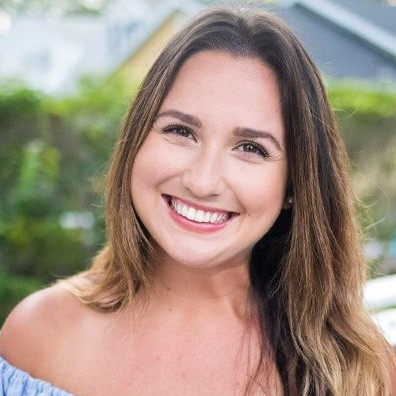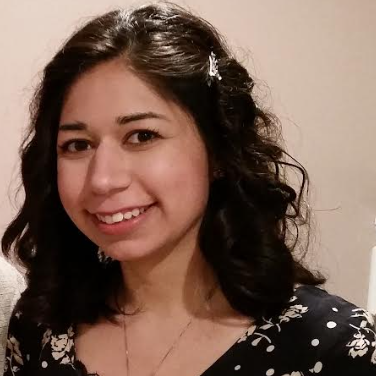Why nursing homes, hospices, and home health agencies need malpractice insurance

When relatives place their loved ones in the care of nursing homes, hospices, or home health aides, their expectations are high. They trust that their family members will receive the assistance, supervision, and respect they deserve. If something goes wrong, the patient’s family members may be inclined to sue your small business.
While a good risk management plan can help prevent lawsuits against your home health agency, accidents and mistakes can still happen, especially when you least expect it. Malpractice insurance protects nursing homes, hospices, and home health agencies against common business risks.
What does malpractice insurance cover?
Medical malpractice insurance is a type of professional liability insurance for healthcare professionals.
It protects home healthcare workers and healthcare businesses from the financial consequences of third-party claims related to professional negligence, medical oversights, and mistakes.
Some of the expenses that are covered under a malpractice insurance policy include:
- Settlements and judgments
- Attorney fees
- Court costs
Additionally, most insurance malpractice policies include a “duty to defend” provision, which means your insurance provider will handle your legal defense (such as hiring a malpractice lawyer) for you.
Some state laws require medical malpractice insurance for healthcare professionals and healthcare businesses. But even if your state does not require healthcare facilities insurance, it’s still an important element of your nursing home or home health agency’s risk management plan.
Some state laws require medical malpractice insurance for healthcare professionals and healthcare businesses.

Malpractice lawsuit triggers for nursing homes, hospices, and home health aides
There are a variety of scenarios where malpractice insurance can protect healthcare businesses, nurses, and other healthcare providers.
Here are some of the most common reasons why individual home health aides are sued for professional negligence:
Failure to adhere to standards of care
Say, for example, you have a patient who develops a bed sore because their nurse did not remember to help them change positions regularly. You might find yourself facing a negligence lawsuit because most home health professionals should know how to handle these situations.
Failure to follow physician-directed care
If a patient’s primary care provider instructs nursing home staff or a home health aide to provide certain types of care, those directives should be followed exactly. If a nurse disobeys the doctor’s orders due to carelessness or accidental negligence, the business can get sued.
Failure to use equipment in a responsible manner
If a healthcare provider misuses equipment and it harms the patient, your healthcare business could be held liable. For example, this might happen if a patient is given a walker that is loose or wobbly, and the patient falls and gets injured as a result.
Failure to communicate
Poor communication is one of the most common reasons for a malpractice lawsuit. Not only can proper communication help manage client expectations, it can also limit potential mistakes when caring for patients. Maintaining open communication with patients’ loved ones can also help you avoid potential problems.
Failure to document
A major task for healthcare professionals is to document patient treatment, progress, and outcomes on a regular basis. But in the event of a malpractice lawsuit, the court may assume that undocumented actions were not actually done, which can make your business look negligent.
Failure to report patient abuse
Nursing home care aides are required to report all accusations of patient abuse, or witnessed abuse, through the proper channels. If abuse is not reported, it could lead to a malpractice claim.
Failure to act as a patient advocate
As a healthcare professional, your patients rely on you to act in their best interest. If they or a family member feels you didn’t advocate for optimal care, you could be sued.
Failure to hire licensed staff
Healthcare facilities can get sued for malpractice if something happens to a patient because a caregiver was not certified or adequately trained.
For example, if a patient received physical therapy by a staff member who was not licensed to provide that care, and their condition got worse, the business could get sued.

How to reduce your risk of a malpractice lawsuit
If you run a nursing home or hospice, or work as a home health aide, medical malpractice lawsuits are one of the biggest risks that your business can face.
And remember, you don’t need to make a mistake to be sued for malpractice. If family members are simply unhappy with the level of care you offer, they could sue just to try to recoup the money they spent on your services.
The best way to avoid lawsuits against your home health agency or nursing home is to be prepared for unexpected problems that may arise while caring for elderly or high-needs patients.
Here are several best practices that can reduce your risk of malpractice lawsuits.
Document correctly
Your records can make or break a case against your healthcare business in court.
For hospices and nursing homes, be sure to implement strict protocol for documenting patient assessments and developments. Any deviations from the patient’s normal eating habits, activities, and emotional state should be noted. Include what time you found this information, when you communicated it, and to whom.
Also, chart all medications given, the time they were administered, and dose changes.
Date, time, and sign every entry
Malpractice lawsuits often boil down to the date and time issues occurred, such as when the patient took a downward turn and how long it took your healthcare business to find out. That’s why all your documentation and notes should be dated, time-stamped, and legible.
Always double check patient records
Nurses and home health aides often care for dozens of patients that each have different conditions, restrictions, and treatment plans. To avoid errors and mistakes, make sure to check and double check patients' records before providing care or administering medications.
Make sure you have the help you need
Understaffing can lead to rushed care, a lack of supervision, and a wealth of other problems. Even if you are shorthanded, you still have a legal and ethical duty to provide all patients with a professional standard of care.
Be selective when hiring new employees
Your employees are the face of your business, so it’s important to hire healthcare professionals who meet your standards for quality of care. Only hire employees who have a clean background check and possess the certifications required to do their job legally and effectively.
If you’re thinking about hiring a travel nurse for a skilled nursing position in your facility, speak with their staffing agency to verify their credentials.
Develop good relationships with your patients
Perhaps the single best way to avoid a malpractice lawsuit is to develop good relationships with patients and clients entrusted to your care. Most of the time, people are less inclined to sue someone who looks out for them and treats them with dignity and respect.
Communicate with physicians
As you care for your patients, you should be communicating with the physicians in charge. If you notice any changes in your patient’s condition or vital signs, have questions about their medical care plan, or just need a second opinion, you should speak with an attending doctor before making a decision on your own.
Prioritize education and training
Healthcare is an evolving industry, so it’s beneficial to offer continuing education and training for your staff.
The National Association for Home Care and Hospice (NAHC) offers a number of online courses, programs, and webinars that can help your workers stay current on new technology, improved patient outcomes, health insurance, Medicare and Medicaid services, and more.

Protect your healthcare practice with the right insurance
Malpractice lawsuits can have serious financial consequences for nursing homes, and other home healthcare agencies. That’s why, in addition to strategic risk management planning, you should carry malpractice insurance or nurse insurance as an extra safety measure.
However, medical malpractice insurance doesn’t cover everything. For example, it won’t cover patient accidents (like tripping on a rug), employee injuries, damaged personal property, or accidents involving business-owned vehicles.
Most healthcare facilities and home health services professionals can benefit from having other types of insurance, such as:
Professional liability insurance
Many small business owners in the healthcare space should consider professional liability insurance, which covers the financial and legal repercussions of claims related to contract violations, misrepresentation, negligence, and poor business advice.
The main difference between professional liability insurance and medical malpractice insurance is that professional liability covers claims against the business, whereas malpractice insurance covers medical professionals against client lawsuits.
General liability insurance
Depending on the type of business you run, you might also need general liability insurance, which covers third-party claims of bodily injury and property damage. General liability insurance is beneficial if you own a skilled nursing facility, assisted living facility, or outpatient clinic where patients and clients visit.
Business owner’s policy (BOP)
A business owner’s policy (BOP) bundles general liability insurance and commercial property insurance at a cheaper rate than buying separate policies. In addition to third-party bodily injury and property damage claims, it also covers damage to your medical equipment and furniture, as well as damage to the office or building, if you own it.
You can also add business interruption coverage to most policies to help cover loss of income if you have to temporarily shut down the business due to a covered property claim.
Commercial auto insurance
If you travel to see patients in a business-owned car or van, you will need to get commercial auto insurance, which is required in most states for businesses that own vehicles.
For example, if you work as a hospice nurse that sees patients at home, commercial car insurance would cover your liabilities if you caused an accident in a business-owned vehicle. You can also get collision and comprehensive insurance to protect your vehicle from physical damage.
If you operate a home-based business and use a personal or rented vehicle, you would need hired and non-owned auto (HNOA) insurance coverage instead.
Workers’ compensation insurance
Workers’ compensation insurance is required in most states for businesses that have at least one employee. This type of insurance covers employee injuries and illnesses that happen in the workplace. It also covers lost wages if the employee can’t work while they are recovering.
Cyber insurance
Because many healthcare facilities have switched to electronic medical records, having cyber insurance is crucial. Also known as cyber liability insurance, this policy provides liability coverage for data breach lawsuits and recovery expenses.
Get insurance quotes from trusted carriers with Insureon
Complete Insureon’s easy online application today to compare quotes from top-rated U.S. carriers for professional liability, medical malpractice, and other types of insurance. Once you find the right policy for your small business, you can begin coverage in less than 24 hours.
If you have questions about purchasing malpractice insurance or getting a professional liability certificate for your nursing home, hospice, or home health agency, contact one of our licensed experts.
Elizabeth Rivelli, Contributing Writer
Elizabeth is a freelance writer with extensive experience covering commercial insurance and personal insurance lines. Her work has been featured in dozens of online finance publications, including Forbes, Bankrate, and Investopedia. Elizabeth also writes for several insurance carriers.










